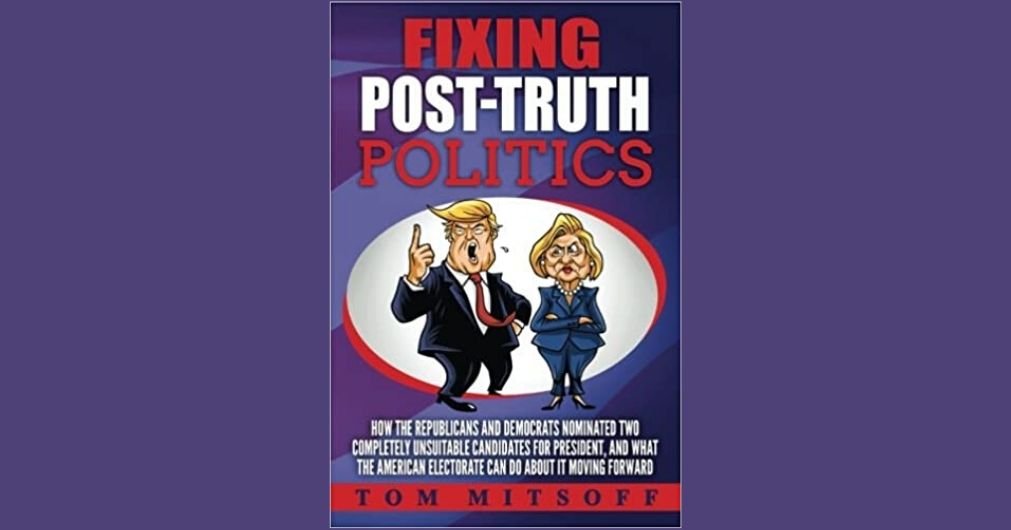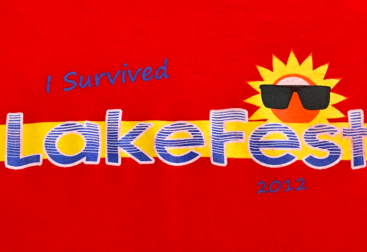How the Republicans and Democrats Nominated Two Completely Unsuitable Candidates for President, and What the American Electorate Can Do About It Moving Forward
The title of this book just about says it all. It was something I felt had to be written. Since I do not politically lean to the far left or the far right, and the fact that I have considerable training and practical experience in journalism, I wanted to write something that spelled out the issues in our political process clearly for people who wanted to learn the truth without reading through red- or blue-colored glasses.
I consider this my best long-form work. It spells out plans for reforming our political system that do not come from either of the dominant political parties. There is a lot that ails our country, and the state of the political process is as close to the top of the list as is possible.
Below I have republished the book’s preface, table of contents, and first chapter:
Preface
This book is written for the more than 100 million United States citizens who do not currently have a voice in national politics. These are the people in the political “middle,” who, in effect, have no representation in the federal government. You will learn in this book that there are more “middle-grounders” than there are Democrats or Republicans in the U.S., but the “middle” has nobody standing up for it.
This book is written for the people in the middle who have an open mind and don’t automatically subscribe and tie themselves to a position or statement just because one of the leaders of the Democratic or Republican parties says it.
You will read in this book how technological and cultural changes over the past half-century have led us to a point in our country’s history where the truthfulness of presidential candidates’ statements is not important to a substantial percentage of the electorate. This trend inspired Oxford Dictionaries to declare “post-truth” their word of the year for 2016. The term refers to a version of reporting and campaigning in which appealing to emotions is more important than factual accuracy.
This book is written for the more than 100 million people who cannot believe that our two major political parties nominated two such completely unsuitable candidates. This book will explain how and why it happened.
This book is also written for the more than 100 million people who can’t believe what is happening to our nation’s political culture, and who want to know what they can possibly do about it in the face of two dominant parties that are all about control and nothing else at this point. This book includes a plan to provide direction to these frustrated people who want to make a difference in our country before it becomes too late.
In the aftermath of the worst presidential campaign most people have ever seen, author Tom Mitsoff asked himself, “How did we possibly get to the point where we as a country nominated these two completely unsuitable candidates? And what can we do to change it?” His research and conclusions are reflected in the content presented in this book.
TABLE OF CONTENTS
Changes must happen
HOW WE GOT TO THIS POINT
‘This is the way they’ll be elected forevermore’
The end of reverence for presidents
News is not free
A perfect storm for fake news
Post-truth: emotions before facts
WHAT NEEDS TO BE DONE FOR REAL CHANGE
The gauntlet facing our ideal candidate
Follow the money
Democrats, Republicans have self-sorted
The ‘15-5’ plan for electoral change
Express yourself
About the author
Endnotes
Changes must happen
The office of President of the United States was respected and revered for most of the country’s history. But in the past 40 years, an almost complete reversal has occurred. There is open disdain and disrespect for candidates for the office, and the people who eventually hold the position.
In 2016, the two major political parties nominated candidates completely unsuited for the office. By statute (the U.S. Constitution), they were qualified for consideration:
Age and Citizenship requirements – US Constitution, Article II, Section 1
No person except a natural born citizen, or a citizen of the United States, at the time of the adoption of this Constitution, shall be eligible to the office of President; neither shall any person be eligible to that office who shall not have attained to the age of thirty-five years, and been fourteen years a resident within the United States.
But in terms of personal integrity, Hillary Clinton and Donald Trump represented an all-time low in the quality of candidates presented to the U.S. electorate. One option was a person who knowingly accepted donations to her personal family foundation from figures of international influence in exchange for the opportunity to meet with, and hopefully influence decisions by, the U.S. Secretary of State. “Pay for play” was the term given to the practice, but a more accurate term is bribery.
The money then benefitted Hillary Clinton and her family directly. According to emails revealed by the WikiLeaks organization, the allegedly charitable Clinton Foundation paid for the multi-million-dollar wedding of Chelsea Clinton, and paid her living expenses for many years.
Hillary Clinton was the Secretary of State who thought it would be okay to run classified emails through a personal email server because it was more convenient for her personally. She also revealed that she viewed approximately half of the electorate as a “basket of deplorables. Right? Racist, sexist, homophobic, xenophobic, Islamophobic, you name it.” (Technically, it was about a quarter of the electorate, because she said that half of Trump supporters belonged in that basket. But all Trump supporters certainly believed she was talking to them personally.)
Or, we had the choice of a man who bragged to friends on video about his success in grabbing women by the genitals because he is a celebrity, and about how he tried to have sex with a married woman. He also made fun of a reporter with arthrogryposis, a condition which limits the movement of joints. After referring to Serge Kovaleski as “a nice reporter” as a press conference, Trump began what appeared to be an impression of him, pointedly flopping his right arm around with his hand held at an odd angle. Consider this was someone Trump had known for years and had been interviewed by on several occasions.
Trump called ABC News reporter Tom Llamas “a sleaze” during a press conference, oddly adding “because you know the facts, and you know the facts well.”
It was clear from a very early point of his campaign that Trump lacks any degree of decorum or respect for anybody who irritates him. His influence over people he views as subordinate to him comes from intimidating and bullying them. Certainly it has worked for him in the business world, but whether it will serve the United States of America well remains very much open to question.
Survey after survey showed that Clinton and Trump were the two most reviled presidential candidates in history. In state after state, people who went to the polls voted for so-called down-ticket races (such as Congress, governor and state legislative seats) but did not cast a vote for the presidential race.
In Michigan, about 88,000 people (approximately 2 percent of the electorate) submitted ballots without a vote for president. In New Hampshire, there were 6,200 more votes cast in the U.S. Senate race than for president. In Wisconsin, more people voted in a competitive U.S. Senate race than for president. Tens of thousands of voters across the country could not bring themselves to select any of the presidential candidates, even though they otherwise exercised their right to vote.
We will reveal in this book how we as a country and society got to a point where individuals as unsuited as Clinton and Trump emerged as the nominees of their respective parties. Polls conducted during the presidential campaign revealed that the U.S. population views the news media in an even more negative light than the candidates. There is a connection there, which we will also explore in this book.
The United States is at a critical point in its political and cultural history. Tensions are high for many reasons, not the least of which is the growth of minority demographics. In 2015, more minority babies were born in the U.S. than Caucasian babies. In 30 to 40 years, Caucasians will be less than 50 percent of the country’s population. The U.S.A. will not have a racial majority, meaning that cultural clashes will continue and perhaps be even more pronounced. The country needs people of standout intelligence, leadership, and integrity to be willing to lead our nation. But those people are not volunteering for the job, once considered the most illustrious and prestigious in the country. Why not? We’ll examine that point as well.
You’ll read two main sections of this book:
- The history and perfect storm of cultural changes that led up to the 2016 presidential election season; and
- What we as a society must do to increase the quality of candidates presented to us on our general election ballots.
Changes must happen. The United States electorate must not allow the choice of president in 2020 to be between such unqualified individuals. We must strive for the standard of nominating the cream of the crop, who are the best of what our country has to offer. The intent of this book is to begin the discussion of how we as an electorate and a society make that happen.
To read more of this book and other books I have published, please visit my Amazon author page.
I am also very proud of this “book trailer” promotional video that I wrote and produced for the book:



